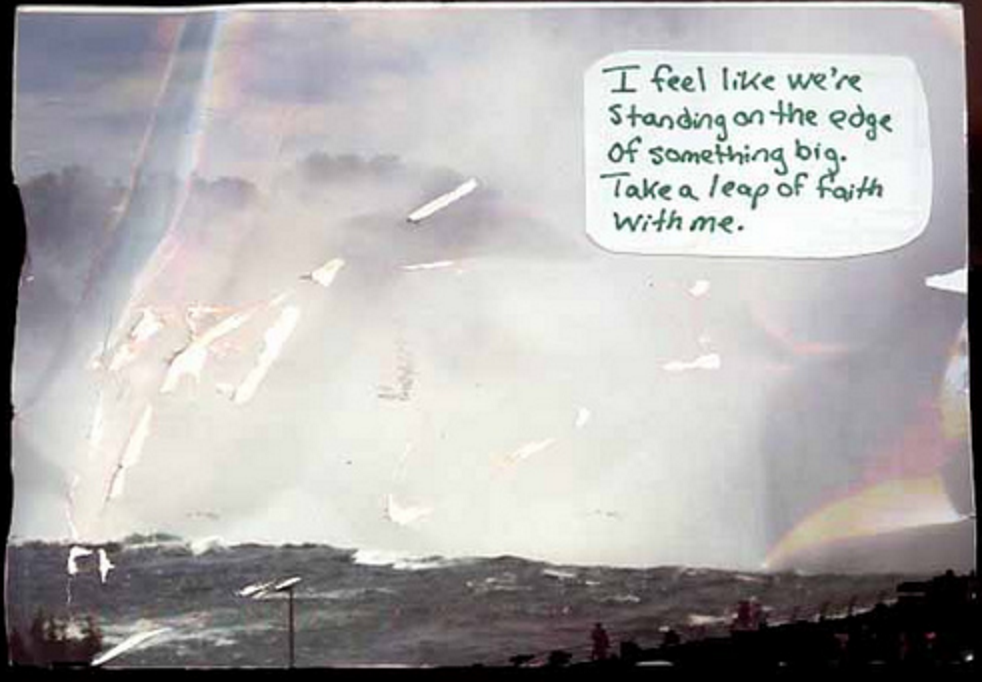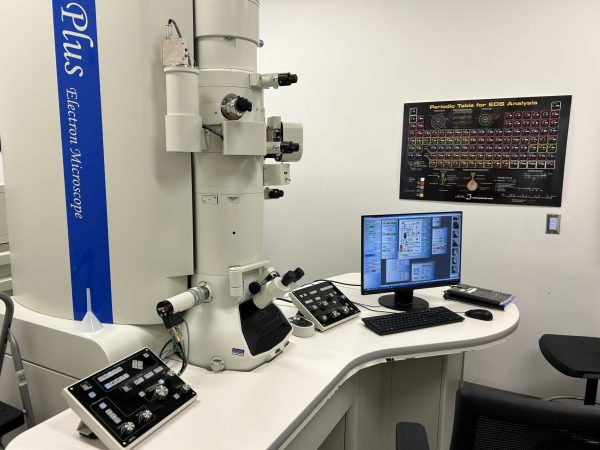Sharing Secrets with Frank Warren: AWOL Sits Down with PostSecret Founder
“My name is Frank, and I collect secrets.” This introduction by Frank Warren, mental health advocate and founder of PostSecret, is a simple way to describe what has become a very large undertaking.
Since 2005, over one million people from all over the world have anonymously sent their secrets to Warren’s home address in Germantown, Maryland. He’s been on the receiving end of untold stories that range from hilarious to heartbreaking to shockingly intimate.
“I’ve been called the most trusted stranger in America,” Warren said.
On Monday February 21, Warren came to campus to share some of these secrets with an intimate gathering of just over 200 people at American University and gave students a chance to share secrets of their own.
Warren wants people to exchange more than secrets though; he also wants people to share their ideas. And since the internet gives everyone “ownership of our printing press,” Warren believes sharing ideas is easy once when decides to try.
“The world is waiting for us to arrange words in the right way and change the world,” Warren said. “That’s why I’m so excited about the future of the web. Because PostSecret was such a simple idea: mail me your secrets. Anybody could have come up with that. Any of you could have had that idea. But I know there are thousands of other ideas out there, right now, as good as PostSecret or better just waiting for one of you to have the faith, the courage, the determination to see it through.”
Since the beginning of PostSecret, the PostSecret community has collectively raised over $1 million for suicide prevention. Warren spoke candidly to the crowd about his own personal experiences with mental illness and the importance of recognizing the need for help and seeking it out. Throughout his talk, he emphasized the importance of reaching out for help when in need of it. Looking around the room he said that in the next year, an estimated eight people in the crowd will consider suicide, and three will make an attempt.
“More than once I’ve received emails from students who say, ‘The only reason I’m alive today is because my friend, my RA, my professor, my classmate asked me how I was doing at just the right moment.’ Sometimes it’s the smallest actions that we take that can have the biggest impact in someone else’s life.”

Noelle Giacona, a senior at American University who attended the event, has been following PostSecret in one form or another since it began when she was in 6th grade. One of her habits when visiting bookstores is to search for PostSecret books and flip through them. She said she felt pleasantly surprised with Frank Warren’s humility and how he takes the project to heart, memorizing and reciting so many secrets. She was more impressed by the project’s focus on mental health and suicide prevention.
“I really love the simplicity of the project,” Giacona said. “I’m so proud of AU for implementing that in our school. I really think a lot of people are going to be able to relate to the secrets.
Throughout the event, Warren lead the audience through a montage of secrets that had been sent to him over the years, both through the mail and at events like this one. Some secrets inspired laughter – he said the most common secrets he receives are variations of “I pee in the shower.” Others challenge the audience with messages about marriages gone wrong, struggles with depression and difficult childhoods. Over the years, the secrets have taught Warren much about life.
“There are the secrets that we hide from others and the ones that we keep from ourselves,” he said. “Sometimes when we think we’re keeping a secret, that secret’s actually keeping us.”
Every day, Warren is faced with the most intimate, private and even shameful facets of people’s lives. This chance to anonymously share something that has until then never been acknowledged to another person offers up the chance to be unburdened or to reflect. After over a decade of receiving these secrets and by his own estimate, “spending 40 to 50 hours a week with secrets,” Warren has not been deterred by emotional overload.
“It makes me feel more connected,” he said in a private interview with AWOL after the event. “And sometimes when you go through the pain it’s helpful to hear others and feel like you’re doing something positive for the world, and maybe through that you help yourself.”
The decade-long project has also expanded how he sees people in everyday life.
“I think people are fascinating and have rich interior lives,” he said to AWOL. “And I feel more of a connection, more empathy with people.”

Nearing the end of the night, Warren invited attendees to share their secrets with the room. After each statement, Warren responded with thanks for their bravery to share and an encouraging comment about their situation.
Giacona said she did not know people were to going to share their secrets at the event and “to have people get up and share secrets [was] very admirable.”
When AWOL asked Warren how he kept the feeling of a close community now that the project has expanded to its size, he responded that small, intimate events like the one at AU keep the sense of community alive.
This event is a kickoff for PostSecretU at American University, a version of the PostSecret project tailored to university campuses. By sharing secrets from students, faculty, staff and professors, PostSecretU will help begin conversations and bridge divides. Tuesday’s event marks the beginning of a deeper conversation on American University’s campus about secrets and how we can use these intensely private moments to reach out to others and strengthen our community.
“When I come to a school like AU and we have this event, the people at the microphone are your classmates or somebody you see walking on campus everyday, someone you’re connected to,” Warren said to AWOL. “So when the secrets are coming from your community and you recognize that, it affects you more deeply.”












